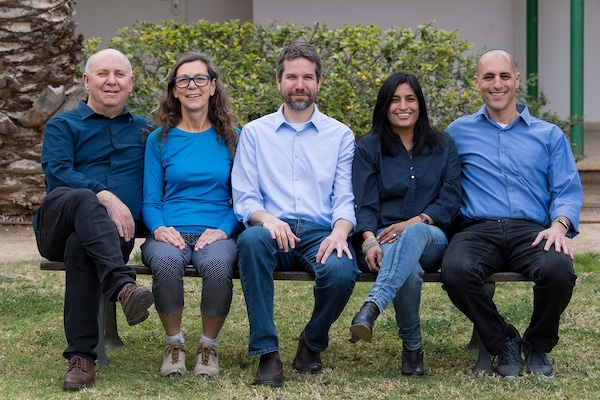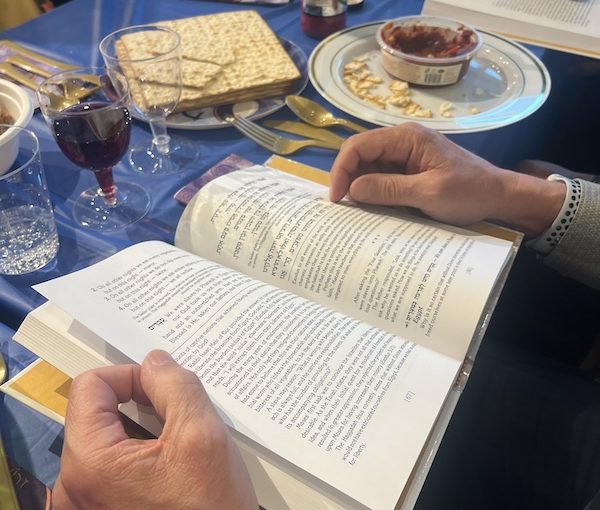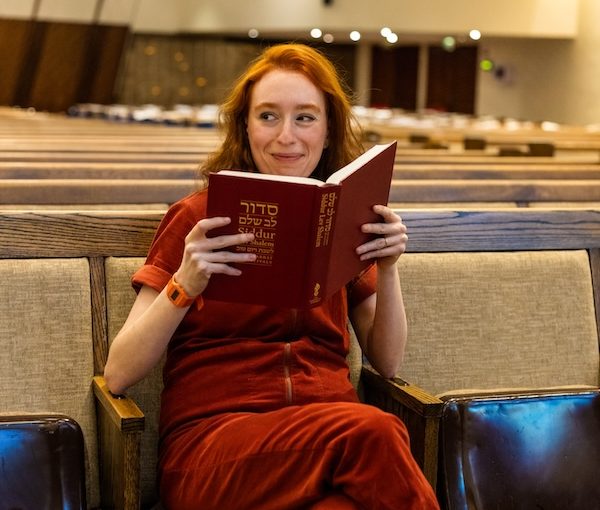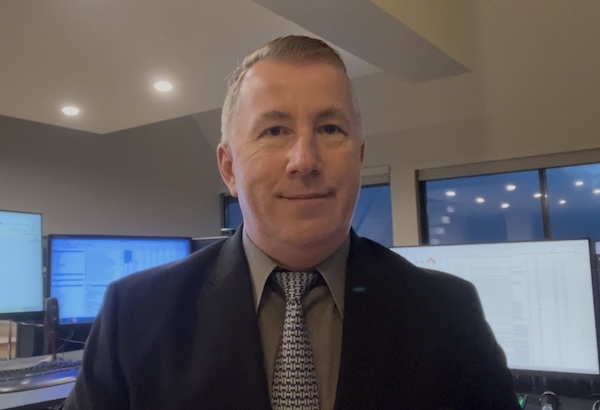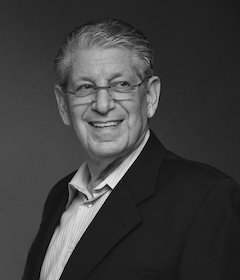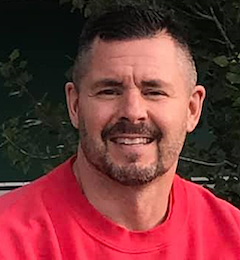The Azrieli National Centre for Autism and Neurodevelopment Research team includes, left to right, Dr. Gal Meiri, Prof. Hava Golan, Prof. Ilan Dinstein, Mazal Malka and Prof. Idan Menashe. Dinstein and Menashe will be in Vancouver in May to meet with colleagues from the University of British Columbia. (photo from azrielifoundation.org)
When the International Society for Autism Research convenes in Seattle April 30 for its annual conference, researchers from all over the world will be flying in to learn about and share the latest research on this multifactorial disorder. Two of them, Idan Menashe and Ilan Dinstein, who head up the Azrieli National Centre for Autism and Neurodevelopment Research (ANCAN) at Ben-Gurion University, will be coming from Israel. When the conference wraps up, they will be in Vancouver to continue a three-year collaboration with autism researchers at the University of British Columbia and Simon Fraser University, and meet with various people, including community members.
Menashe and Dinstein were part of a group – that included Dr. Tim Oberlander from UBC’s School of Population and Public Health and Grace Iarocci, director of SFU’s Autism and Developmental Disabilities Laboratory – that published a paper in 2023 on whether oxytocin is associated with an increased risk of autism in offspring.
“Oxytocin is a neuropeptide hormone that plays a key role in social behaviour, stress regulation and mental health,” begins the paper’s abstract. “Synthetic oxytocin administration is a common obstetrical practice and, importantly, previous research has suggested that intrapartum exposure may increase the risk of neurodevelopmental disorders, such as autism spectrum disorder.”
The study supported the conclusion that “induction of labour through oxytocin administration does not increase the risk of autism spectrum disorder in the child.” However, Menashe and Dinstein’s own studies in Israel found an association between autism and the use of general anesthesia during caesarean sections.
“Having a C-section with general anesthetic increases the risk of diagnoses of autism in offspring by 60% compared to natural birth,” Menashe told the Independent. Because general anesthesia in C-section is infrequently used, that risk is low, but consistent, he added.
Menashe, Dinstein, Oberlander and Iarocci are excited to reunite in Vancouver in May because they all have access to population health data that allows them to compare their results. Such comparisons are especially valuable given that autism rates are increasing the world over.
Menashe said the rate of autism is 2% in Israel and Canada, and more than 3% in the United States. “We know a big portion of this increase is due to increased awareness among parents and caregivers, but we don’t know if that explains everything,” he said.
Autism is highly heterogeneous, he continued. “Every child is different and no two children present exactly the same autism symptoms. We believe the causes of autism are also very heterogeneous, and that’s what makes research so complicated, but also so interesting.”
Because of that heterogeneity, research requires collection of data from large populations. At the Azrieli National Foundation for Autism Research, Menashe and Dinstein work with nine clinical centres to collect data.
“A major advantage we have in Israel is our access to families’ medical records,” Menashe explained. “We ask families from those clinics to participate in genetic studies, through which we try to identify the genetic causes of autism.”
Menashe, Dinstein, Oberlander and Iarocci meet monthly by Zoom to discuss their findings. By collaborating, the four researchers can compare Israeli findings to those in British Columbia.
“The comparisons make our research more powerful,” Iarocci said. “They allow us to see what’s the same and what’s different cross-culturally.
“Our goal with autism is early identification, early diagnosis, and offering interventions that are effective,” she continued. “When we collaborate, we can compare very large data sets and, without those comparisons, you can’t really answer these questions meaningfully.”
“We’ve had a very productive collaboration so far, and what makes it especially important is the cross-jurisdictional research we can do,” Oberlander said. “There are few jurisdictions in the world that can do this effectively, but Israel and BC are two of them. It’s a wonderful collaboration, a great model, and we’re looking forward to seeing them in Vancouver in May.”
While here, Menashe and Dinstein will participate in an invite-only parlour meeting on May 4. Those interested in attending should contact David Berson, executive director, BGU Canada, British Columbia & Alberta, at davidberson@bengurion.ca.
Lauren Kramer, an award-winning writer and editor, lives in Richmond

